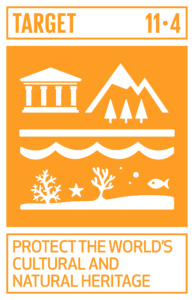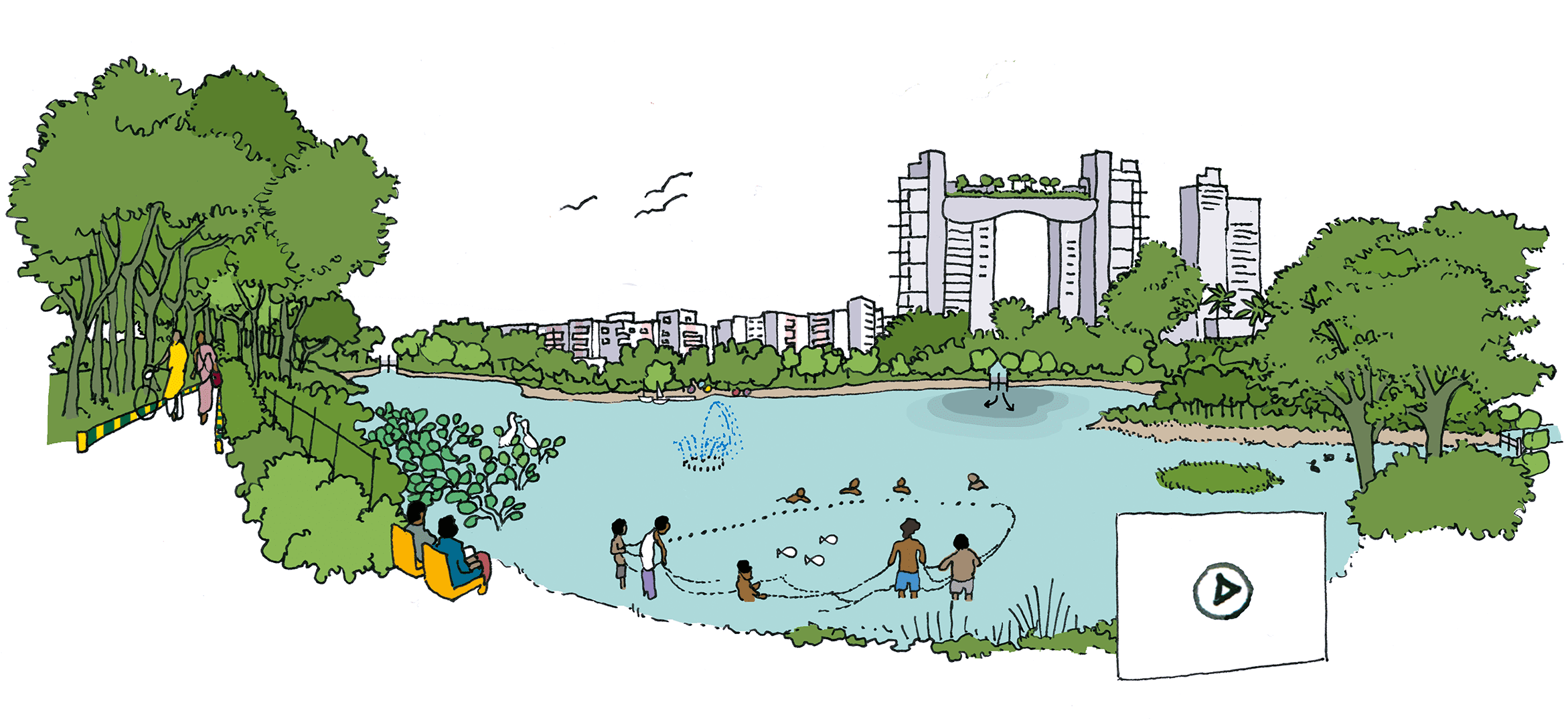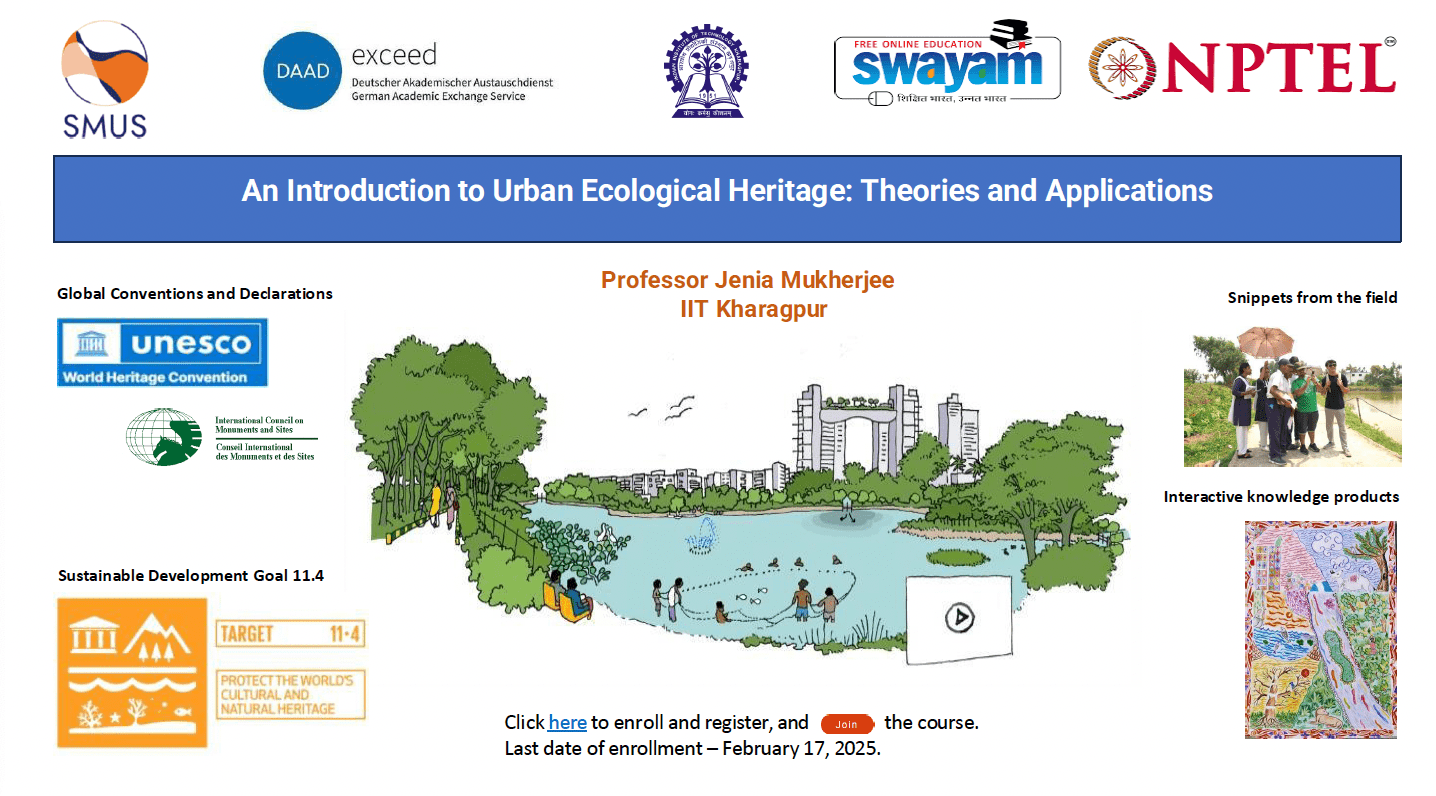Urban Ecological Heritagescapes through Interactive Governance: Theories and Applications
INDIA, Kharagpur
IIT Kharagpur, Department of Humanities and Social Sciences
Case studies include ecological infrastructures of two metropolitan cities from India: Kolkata (east) and Bengaluru (south)
The Urbanocene as a transformative scenario is prompting researchers to address urban-environmental intersections, critically interrogating the city–nature antithesis and ontologizing cities as ‘secondary natures’. The heritage approach to explore cities and the expansion of the notion to ‘heritagescapes’ (implying situated practices, cultural expressions, indigenous knowledge technologies, ecological spaces, etc.) is an enabler to advance sustainable urban development goals. It is the congruous conceptual frame to delve deep into urban palimpsests – the historical evolution of urban nature across arrays of dynamic interactions between bio-physical attributes, socio-cultural activities, and political decision-making.
This MOOC will address and explain ‘urban ecological heritagescapes’ as a theoretical traction to foster sustainable urbanization especially within the diverse and complex urban geographies of the global South (more specifically India). Here participants will engage with theories on natural-cultural heritage, grasp interdisciplinary methodological frameworks such as environmental history and political ecology, and learn about the recent initiatives of international and national agencies (such as ICOMOS, Ramsar, etc.) in this direction. Snippets from the field and voices of multiple actors (civil society, bureaucrats, engineers, communities, NGOs and GROs) from the wetlands of Kolkata and lakes of Bengaluru will empirically inform theoretical insights – foregrounding and activating the role of ‘interactive governance’ in co-managing ‘natural’ heritage and ensuring urban resilience from within.
SDG #11 Target:










